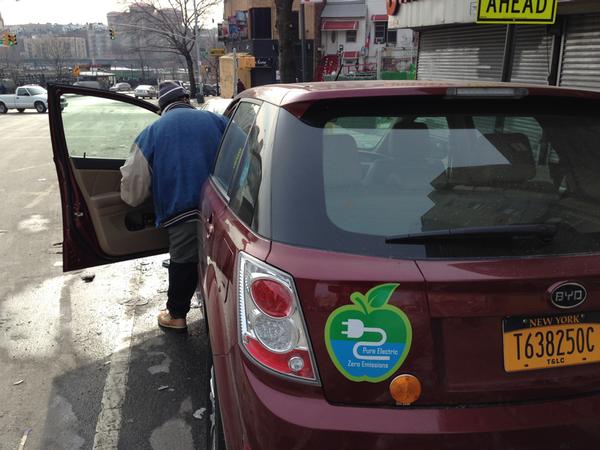In New York, the transportation sector alone is responsible for 36 percent of the state’s greenhouse gas emissions, and that number is growing.

Oliver Morrison
A clean fuel standard would help businesses and automakers to transition to electric vehicles, the author writes.Our fossil fuel-powered cars and trucks are a major threat to public health. With every trip, the fuel we use contributes to pollution in our air, including particulate matter, nitrogen oxides, and ozone. These pollutants are directly tied to a variety of health issues, leading to more emergency room visits, hospital admissions and premature deaths. Exposure to particulate matter is also linked with more severe and life-threatening cases of COVID-19, and we know that the pandemic is disproportionately affecting communities of color.
Fossil fuel-powered vehicles are also driving climate change. In New York, the transportation sector alone is responsible for 36 percent of the state’s greenhouse gas emissions, and that number is growing. Climate change is a health emergency. If we hope to reverse the harmful effects of these pollutants, we need to transition away from petroleum-based fuels now and toward a future of electric vehicles.
New York needs to pass bill A.862/S.2962 to establish a clean fuel standard. This is one important step to cleaning our air and improving public health for New Yorkers.
A clean fuel standard works to transform the fuels market into one that relies on clean transportation, instead of one that reaps profits from emissions. Under a clean fuel standard, all fuel sources are assessed on a carbon intensity scale that measures the full life-cycle emissions; fuels that pollute more than the standard generate deficits and fuels cleaner than the standard generate credits. Credits generated will make it easier for businesses and automakers to transition to electric vehicles, which produce zero tailpipe emissions, overall reducing our reliance on harmful fuel sources.
We cannot stall when it comes to reducing transportation emissions. A clean fuel standard will allow New Yorkers to begin the transition to clean transportation now. By making it more affordable to adopt electric vehicles (EVs), we can transition away from petroleum-fueled vehicles, helping to clean our air.
The American Lung Association understands the importance of reducing our transportation emissions. In the “Road to Clean Air – Electric Vehicle Report,” the American Lung Association outlined the major public health benefits of a robust transition to electric vehicles, coupled with increased use of clean, renewable electricity to charge them. We found that by 2050, we can save 6,300 lives, avoid 93,000 asthma attacks and save $72 billion dollars in health costs nationally.
We’re encouraged to see that New York is addressing transportation pollution head-on. The Transportation Advisory Panel, part of Gov. Andrew Cuomo’s Climate Action Council, has had regular conversations about the potential role of a clean fuel standard to reduce our transportation emissions. But now, we need to see action.
A clean fuel standard will also make it easier for businesses, automakers, fleets, and rideshare companies to reach their EV goals and help improve New York’s air quality. We don’t have time to waste when it comes to reducing emissions from the transportation sector; a clean fuel standard will help clear the air, starting now.
Ultimately, we need a multi-pronged approach to tackling air pollution in New York, and a clean fuel standard is part of the solution. We’re calling on the state legislative leaders to pass bill A.862/S.2962 to get New York on track to transition to a clean transportation future.
Trevor Summerfield is the director of advocacy at the American Lung Association.









One thought on “Opinion: Adopting a Clean Fuel Standard Will Clean New York’s Air”
Electric vehicles help reduce pollution but don’t eliminate it. There are more emissions in the production of an electric vehicle than a standard ICE vehicle. In addition the production of electricity adds to emissions. So, replacing ICE vehicles with electric does not eliminate emissions especially when you have a Govenor who is against nuclear power that generates zero emissions. Then there is the recycling issue with the spent batteries. Another pollution problem. There are many hurdles to overcome. Electric vehicles are only part of the solution. You SHOULD NOT present electric vehicles as gods answer to our pollution problems